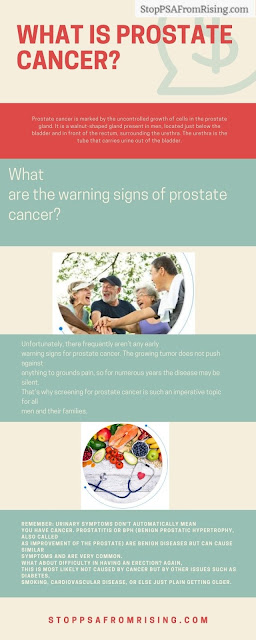Prostate cancer and its symptoms – Everything you should know!
What’s
prostate cancer?
Prostate cancer is a grave sickness that
affects thousands of men each year who are middle-aged or older. About sixty
percent of the cases occur in men older than age sixty-five.
The prostate is a small gland found in a
man’s inferior abdomen. It’s situated under the bladder as well as surrounding
the urethra. The prostate is synchronized by the hormone testosterone along
with generates seminal fluid, also known as semen. Semen is the stuff
containing sperm that exits the urethra through ejaculation.
When an irregular, malignant growth of
cells — which is called a tumor — forms in the prostate, it’s known as prostate
cancer. This cancer can extend to other areas of the body. In these cases,
because the cancer is prepared of cells from the prostate, it’s still called
prostate cancer.
As per the data of Urology Care
Foundation, prostate cancer is the second-leading cause of cancer deaths for
men in the United States.
Types
of prostate cancer
 |
Prostate Cancer
In most of the men prostate cancer are
types of cancer called an adenocarcinoma. This is a cancer that grows in the
tissue of a gland, such as the prostate gland.
Prostate cancer is also classified by
how fast it grows. It has two sorts of growths:
·
aggressive, or fast
growing
·
nonaggressive, or slow
growing
With nonaggressive prostate cancer, the
tumor either doesn’t grow or else grows very modest over time. With aggressive
prostate cancer, the tumor can grow quickly as well as may spread to other
areas of the body, such as the bones.
Prostatecancer causes and risk factors
There is no known cause for prostate
cancer. Like all cancers, it could be caused by many things, including a family
history or else revelation to certain chemicals.
Whatever the instigating factor is, it
leads to cell mutations as well as uncontrolled cell growth in the prostate.

Comments
Post a Comment